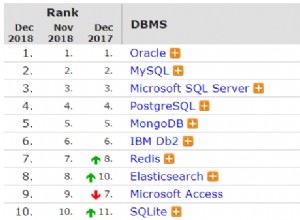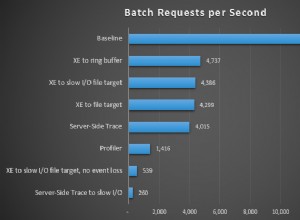Esempi di query MySQL utili e comuni con risposte per lo sviluppatore e i DBA
Come creare un database MySQL
mysql> create database techdb;
mysql> use techdb;

Come creare una tabella nel database mysql?
Ecco l'esempio per la creazione di tabelle nel database MySQL
(1) Dobbiamo prima entrare nel database
use techdb;
(2) Crea una tabella usando la sintassi seguente
CREATE TABLE test ( test_id bigint(20) unsigned NOT NULL AUTO_INCREMENT, test_desp varchar(255) COLLATE utf8mb4_unicode_ci NOT NULL DEFAULT '', test_name varchar(255) COLLATE utf8mb4_unicode_ci NOT NULL DEFAULT '', test_updated datetime NOT NULL DEFAULT '0000-00-00 00:00:00', PRIMARY KEY (test_id) ) ENGINE=InnoDB DEFAULT CHARSET=utf8mb4 COLLATE=utf8mb4_unicode_ci;
Spiegazione dei vari dettagli nella sintassi per la creazione di tabelle x
test -> Nome tabella
test_id,test_description -> Colonna tabella
bigint(20,varchar -> Tipo di dati per la colonna
Non null-> la colonna non può essere nulla
utf8mb4_unicode_ci -> Fascicolazione
AUTO_INCREMENT -> I valori vengono incrementati automaticamente all'inserimento
Motore -> Specifica il motore per la tabella
Come mostrare la struttura della tabella dopo la creazione
Una volta che la tabella è stata creata correttamente, la struttura della tabella può essere mostrata utilizzando
Desc test
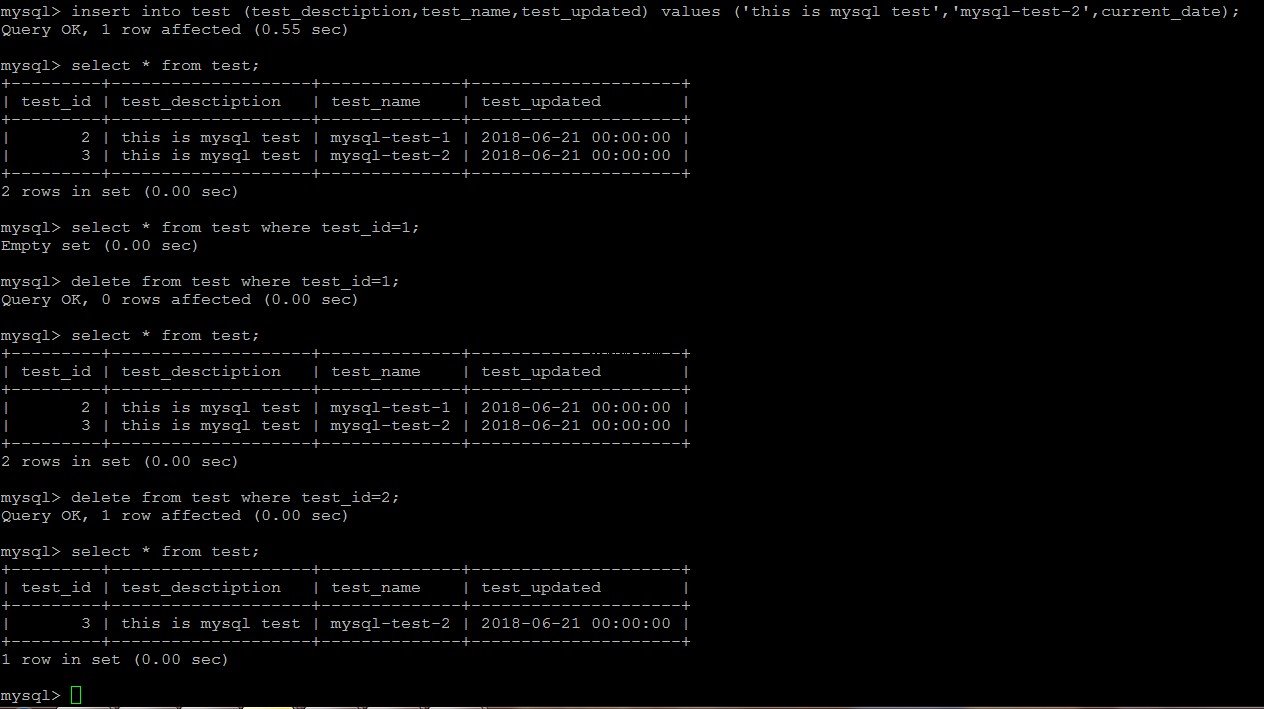
Come ottenere l'istruzione di creazione della tabella per la tabella in MySQL?
lo si può scoprire usando il comando
mysql> show create table <table name>

Come eseguire l'operazione DML comune riportata di seguito sulla tabella?
(a) Inserisci la dichiarazione
insert into test (test_desctiption,test_name,test_updated) values ('this is mysql test','mysql-test-1',current_date); Qui non abbiamo specificato test_id in quanto si tratta di un incremento automatico e avrà un valore quando le righe vengono inserite nella tabella
(b) Seleziona l'estratto conto
select * from test where test_id=1;
(c) Elimina dichiarazione
delete from test where test_id=1;

Come disabilitare l'autocommit per la sessione?
SET autocommit=0;
Come modificare o eliminare la tabella in MySQL?
Modifica tabella
alter table test add (test_description varchar(255) not null default '');
Tavolo basso
drop table test2;

Come creare una tabella da un'altra tabella in MySQL?
create table test4 select * from test3;
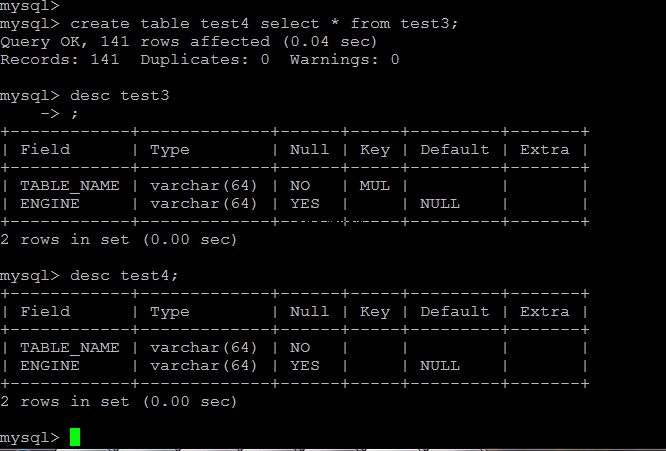
Come creare un indice e trascinare un indice sulla tabella in MySQL?
(a) creare un indice
create index test3_idx on test3(table_name);
(b) mostra l'indice
show index from test3;
(c) indice di caduta
drop index test3_idx on test3

Come ottenere il piano di esecuzione per la query mysql?
explain <query>

Come selezionare i dati da più tabelle utilizzando join in Mysql?
Mysql supporta inner join, left join e Right join per recuperare dati da più tabelle contemporaneamente
Unione interiore
select test_name,student_name,test_marks from test,student_test where test.test_id=student_test.test_id; or select test_name,student_name,test_marks from test join student_test on test.test_id=student_test.test_id
Partecipa a sinistra
select test_name,student_name,test_marks from test left join student_test on test.test_id=student_test.test_id;
Partecipa a destra
select test_name,student_name,test_marks from test right join student_test on test.test_id=student_test.test_id;
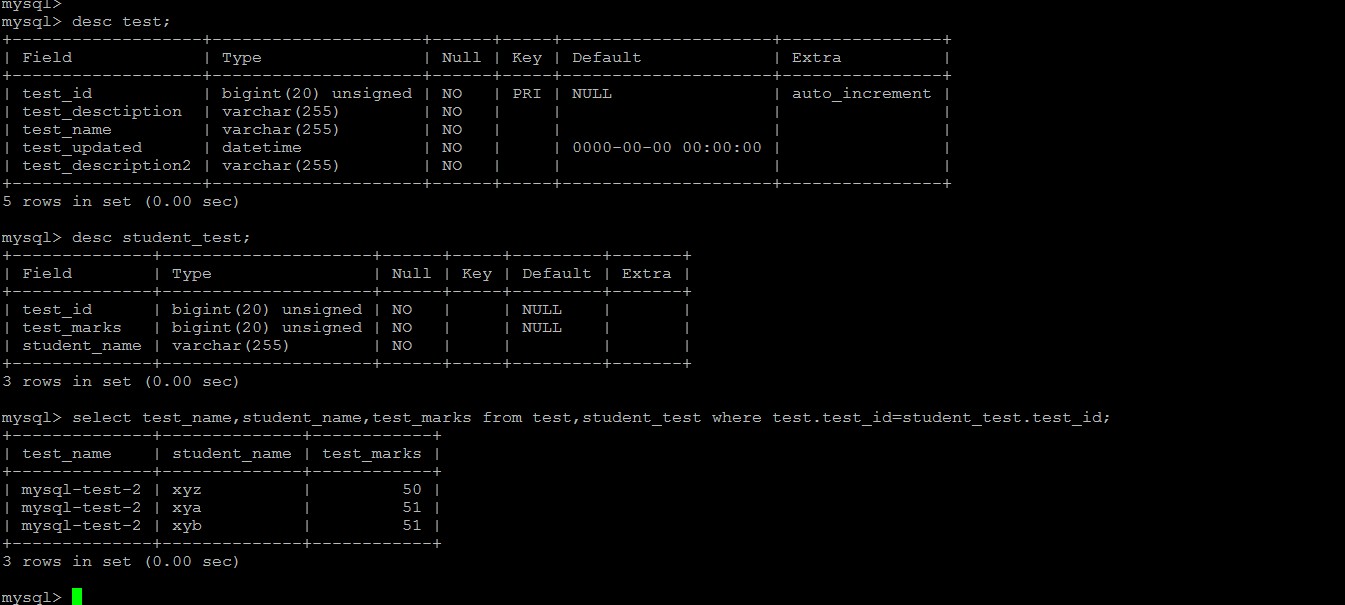
Colonna di incremento automatico nel database MySQL
Possiamo avere un attributo di incremento automatico per la colonna in Mysql
CREATE TABLE test ( test_id bigint(20) unsigned NOT NULL AUTO_INCREMENT, test_desp varchar(255) COLLATE utf8mb4_unicode_ci NOT NULL DEFAULT '', test_name varchar(255) COLLATE utf8mb4_unicode_ci NOT NULL DEFAULT '', test_updated datetime NOT NULL DEFAULT '0000-00-00 00:00:00', PRIMARY KEY (test_id) )
Spero che questi esempi di query MySQL con risposte ti piacciano
Articoli correlati
Guida passo passo per l'installazione di MySQL su Windows
Colonna di incremento automatico – Sequenza come valore predefinito in Oracle e mysql
Le 51 domande e risposte più frequenti per le interviste MySQL
Guida passo passo per creare ambiente di sviluppo locale di Apache PHP MySQL su Windows
Come reimpostare la password di root MySQL


